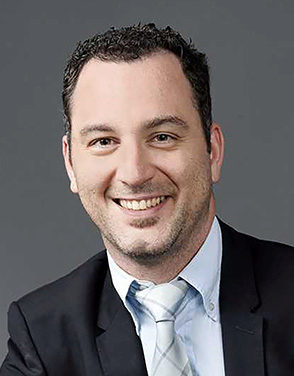 |
| Prof. Kyriakos Vamvoudakis |
"Non-Equilibrium Game-Theoretic Learning Techniques for Mitigating Adversaries in Complex Adaptive Systems," a proposal developed by aerospace engineering professor Kyriakos G. Vamvoudakis, has been selected to receive a three-year, $360,000 award under the Army Research Office's prestigious Young Investigator Program (YIP).
The YIP annually awards grants to promising young university faculty to support their research and teaching careers. Last year, Vamvoudakis received a similar honor - the NSF CAREER Award - to fund a project with title, "Towards an Intermittent Learning Framework for Smart and Efficient Cyber-Physical Autonomy."
"With cyber becoming the battlefield of tomorrow, this research in increasingly important," said Cliff Wang, Ph.D., division chief, computing sciences, Army Research Office, an element of the Combat Capabilities Development Command.
"This research will develop new models that could guide military defense in cyber conflict and to help formulate best strategies against our adversaries.
The AE School Chair, Prof. Mark Costello, praised the ARO's choice, adding:
"From the moment Professor Vamvoudakis set foot on our campus his initiative and vision have invigorated his colleagues. We are excited to collaborate with him as he continues his research."
The ultimate goal of Vamvoudakis's YIP research will be an improved strategy for fighting cyberphysical attacks in autonomous systems. Vamvoudakis and his team will use the grant to develop novel non-equilibrium game-theoretic adaptive algorithms for systems in adversarial, dynamic and uncertain environments. Their approach will include concepts from different disciplines, including game theory, nonlinear adaptive learning theory, cognitive science, and network security.
"We want to develop a better understanding of how cyberphysical attackers think when they are attacking any number of targets - UAVs, for instance. We are using non-equilibrium game theory because psychology tells us that the attacker and the defender are not going to be acting rationally all the time. We wanted to model the irrational and, at the same time, track their intelligence -- how much they know about the conditions -- over time. Then, depending on how smart they are at any point, we will be better able to define a strategy to mitigate their cyber-attacks."
Eventually, Vamvoudakis predicts that this research will enable the military to better coordinate teams of UAVs, manned vehicles, and humans in unknown and dangerous environments -- the very definition of modern cyber-warfare.
"The models, theories, techniques, and tools developed as part of this research will lay the foundation for the Department of Defense to develop more effective techniques against intelligent attackers with different levels of rationality and capabilities," he said.
In addition to working on the YIP project with his own aerospace engineering doctoral students, Vamvoudakis plans to collaborate with colleagues in other GT engineering schools as well as the many GT centers and institutes, chief among them: Institute for Robotics and Intelligent Machines (IRIM), the Decision Controls Lab (DCL), The Center for Machine Learning, Institute of Information Security and Privacy, Center for the Development and Application of Internet of Things Technologies